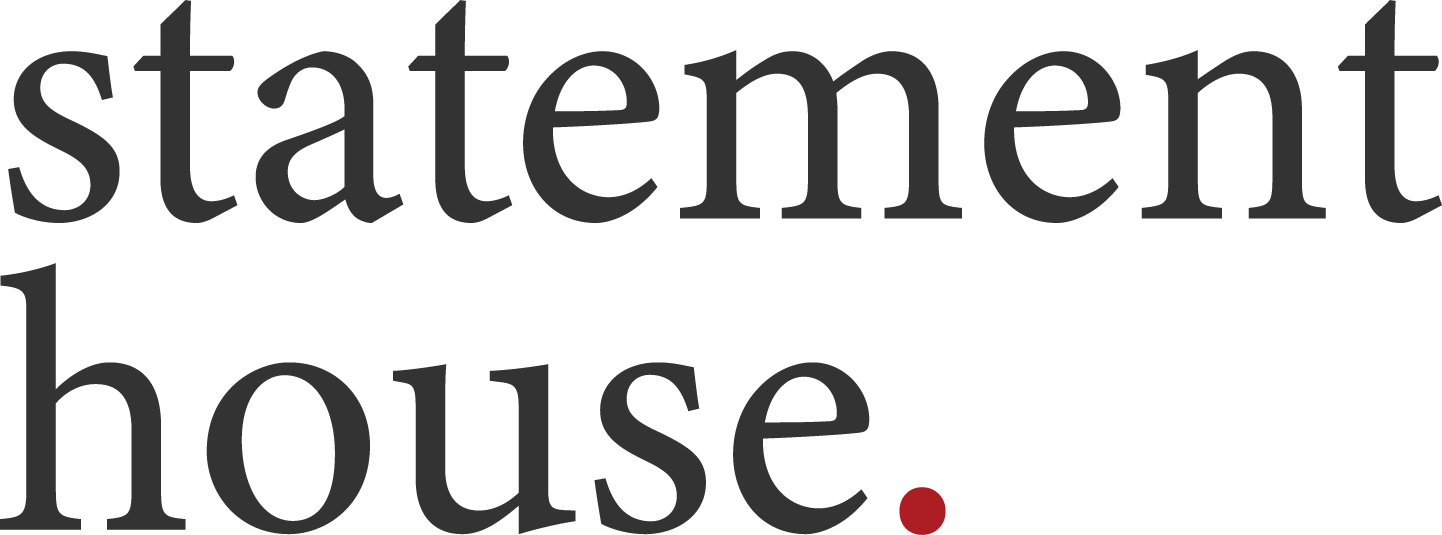Using Evaluation to Strengthen your Federal Grant Application
March 2023
By Cristin Rollins, Ph.D.
Nearly everyone who is writing a proposal to a state or federal grant needs evaluation and assessment. Statement House partners with agencies, organizations, and programs to plan and evaluate state and federally funded initiatives that benefit communities and families. If you select Statement House as your evaluation partner, we can help you develop a strategic and data-driven proposal that shows you are thinking about measuring and communicating impacts from the beginning.
Below are some Frequently Asked Questions grant seekers have about evaluation for Federal Grants:
Q: What is the benefit of naming an evaluation partner like Statement House in my grant proposal?
A: As a full-service research and evaluation firm, Statement House can help you develop a research-informed project narrative, a data-savvy program design, SMART objectives, and a right-sized system or process for measurement and reporting so that your proposal is competitive and compelling. In addition to helping you put your best foot forward as an applicant, Statement House can align reporting requirements to a high-quality evaluation strategy that fits your organization’s capacities and needs. Finally, as an independent evaluator of your program, Statement House helps show federal grant reviewers that you are serious about developing or expanding a data-informed program that is free from internal bias. In addition to her 20(+) year career as an evaluator of community-based programs, Dr. Rollins, Statement House’s CEO, teaches grant writing at Agnes Scott College.
Q: When do I need to include evaluation information or an evaluation plan in my proposal?
A: Not all grant proposals require an actual evaluation plan, but many program announcements and funding opportunities will require you to include an overview of your evaluation strategy with specific milestones and important elements. Most federal announcements come with a list of required performance measures that must be collected, organized, tabulated, summarized, and reported by all grantees. Typically, the larger the dollar amount and the more involved the funding opportunity, the more likely it is that your grant will require an evaluation. On the flip side, smaller opportunities will not. If you are unsure whether your proposal requires an evaluation, give us a shout at hello@statementhouse.net.
Q: Do I need an evaluation or a research partner?
A: Often time, “evaluation” and “research” get confused. There is a difference between the two, although there are several commonalities. Here are some rules to go by:
Research:
Generalizes
Designed to PROVE something
Provides the ability to draw conclusions
Gives information on how something works
Answers the question: What is it?
Evaluation:
Particularizes
Designed to IMPROVE something (a program, a process, the way agencies work together, important decision-making, etc.)
Provides the ability to make better decisions
Gives information on how well something works
Answers the question: What is valuable about it?
For federal agencies like OJJDP, BJA, and SAMHSA that fund community-based organizations, unless the NOFA specifically states the monies are to be used for research purposes, you need an evaluation, not a research partner.
Q: What kind of evaluation do I need?
A: To determine which is best for your grant initiative, you need to think about the age and stage of your program and what you want the grant monies to do for it. There are 4 main types of evaluation to consider.
Formative evaluations are usually appropriate for new programs or when a program or activity is being adapted, expanded or modified. Formative evaluations ensure that a program or activity is feasible, appropriate, and acceptable before it is fully implemented.
Process/implementation evaluations determine whether program activities have been implemented as intended. Process Evaluation results will strengthen your ability to report on your program and use information to improve future activities. It allows you to track program information related to Who, What, When and Where questions:
-WHO received program efforts?
-WHAT has your program done?
-WHERE did your program activities take place?
-WHEN did your program activities take place?
-WHAT are the successes/challenges to the implementation of your program’s activities?
Outcome/effectiveness evaluations measure your program’s effects in your target population by assessing the progress in stated program objectives or outcomes.
Impact evaluations assess program effectiveness in achieving ultimate, long-term goals.
Q: What does the evaluation process entail?
A: Regardless of the evaluation type you chose for your project, an evaluation process can be broken down into a series of steps that moves with your grant-funded program from program preparation to implementation to sustainability. Together, we will:
Develop a conceptual model of the project and identify key evaluation points. This ensures that all participants and stakeholders understand the project's structure and expected outcomes. An initial model helps all parties focus on the project’s most important elements.
Create evaluation questions and define measurable outcomes. Outcomes may be divided into short-term and long-term, or defined by the more immediate number of people affected by the project versus the overall changes that might not occur until after the project’s completion.
Develop an appropriate evaluation design. A successful evaluation both highlights the most useful information about the project’s objectives and addresses its shortcomings. In developing an evaluation design, you should first determine who will be studied and when, and then select a methodological approach and data collection instruments.
Collect data.
Analyze data and provide it back to interested audiences.
Q: How much do evaluations cost?
A: Many federal opportunities dictate how much must be spent on evaluation. When they do not, your program objectives, what you want to know, what you hope results will do for your program should be considered. A standard to keep in mind is 20-30% of the grant budget should yield a high-quality evaluation.
Q: How much does it cost to work with Statement House on our application?
A: Grant proposal consultation services are free when Statement House is your named evaluation partner on your grant application.
Q: Great! What can we do to get started?
A: Please contact us at hello@statementhouse.net
